“A practice may be defined as the dedicated, daily exercise of commitment, will, and focused intention aimed, on one level, at the achievement of mastery in a field but, on a loftier level, intended to produce a communion with a power greater than ourselves.” —Turning Pro, Steven Pressfield
The other night as I was dying in the front row of the second of two consecutive spin classes, I asked myself “why am I doing this? What possessed me to think this was a good idea? I’m not training for a marathon, I’m not trying to lose weight, I am just a regular lady who apparently makes bad decisions like taking two classes in a row!!” A couple years ago I would never dream of even setting foot in a spin class, let alone doing more than one a day. During the seemingly endless free time on the train ride home I started to wonder what I’m training for. Sure I’d love to play soccer or lacrosse again, but is that really what’s driving me? And then I realized: I am training for my life. I know that sounds a bit dramatic, but bear with me.
Imposter Syndrome is so heavy
I think for most people, working out is a “nice to have” that comes lower on the list of priorities than their career / relationship / family / literally everything else—which is totally valid and understandable. But for me, exercise is central to at least a few of those things. As I’ve been thinking about my own career, I’ve realized that I’m not necessarily lacking in skill or talent, but in confidence. After over a decade of practicing, studying, and immersing myself in design, I still struggle to feel qualified to actually pursue it as a career. And no matter how much I’ve tried to take steps that make me look more qualified on paper, it’s still hard to internalize it. No matter how much I accomplish, the Imposter Syndrome is so heavy.
As I was trying to revamp my resumé last year, a voice inside my head kept telling me I wasn’t qualified for the jobs that I truly wanted. My friends and family urged me to brag more about my work in my cover letters, but I didn’t feel like I had anything to brag about. I felt I had nothing to show for the last few years of my life and that everyone would see through me. It also didn’t help that every time I looked at the team page of an agency I was interested in, I almost never saw faces that looked like mine. It was almost exclusively white, mostly male faces staring back at me. I knew logically that things like that shouldn’t deter me from chasing my dreams—and for the most part they haven’t—but it certainly didn’t make me feel more welcome.
After a long series of discussions with my work wife (and my therapist), I realized this struggle wasn’t isolated to job applications, but part of a larger pattern of not recognizing my own accomplishments. Generally when I finish a task, I check it off my list and move on to the next. This makes me productive on a day to day basis, but when it comes to larger goals, it can be a hindrance. It means I’m quick to move on without taking time to pause and recognize that I met a goal—let alone celebrate it. After years of operating this way, it was hard for me to look back and make a list of of achievements for my resumé because that muscle was so weak. Until recently, I hadn’t found a way to successfully strengthen it.
Learning to celebrate my accomplishments
Some people swear by daily affirmations, but that felt hollow because I didn’t believe the words. Trying to change my negative self-talk without a tangible action was nearly impossible. When I started working out more regularly, I discovered that fitness could provide a practice arena totally separate from my real life. If I try a new class and do horribly, it has no impact on my job or relationships. If I make a complete fool of myself, there’s a good chance I never have to see any of those people again. It also creates a simple (not to be confused with easy) goal each time: get there, do the damn thing, and make it out on the other side. I don’t have to plan the workout or think about what’s coming next, I just show up and execute.
This clarity about the task at hand means I don’t get bogged down overthinking everything. I’m notorious for being in my head and taking a long time to actually do the things I’ve been planning for months. While there’s nothing wrong with that approach (more on this another day), it does make it difficult to recognize when my hard work is slowly nudging me toward my goals because the results are so intangible. When I go to a class and finish the workout, there is no denying that I accomplished what I set out to do and that is something to be proud of. The more I do it, the more I internalize the fact that I’m a badass for consistently doing something that most people are scared to even try. On top of that, every time I do something during that 45 minutes that I couldn’t do the day before, I’m reminded that it’s an accomplishment I have to honor.
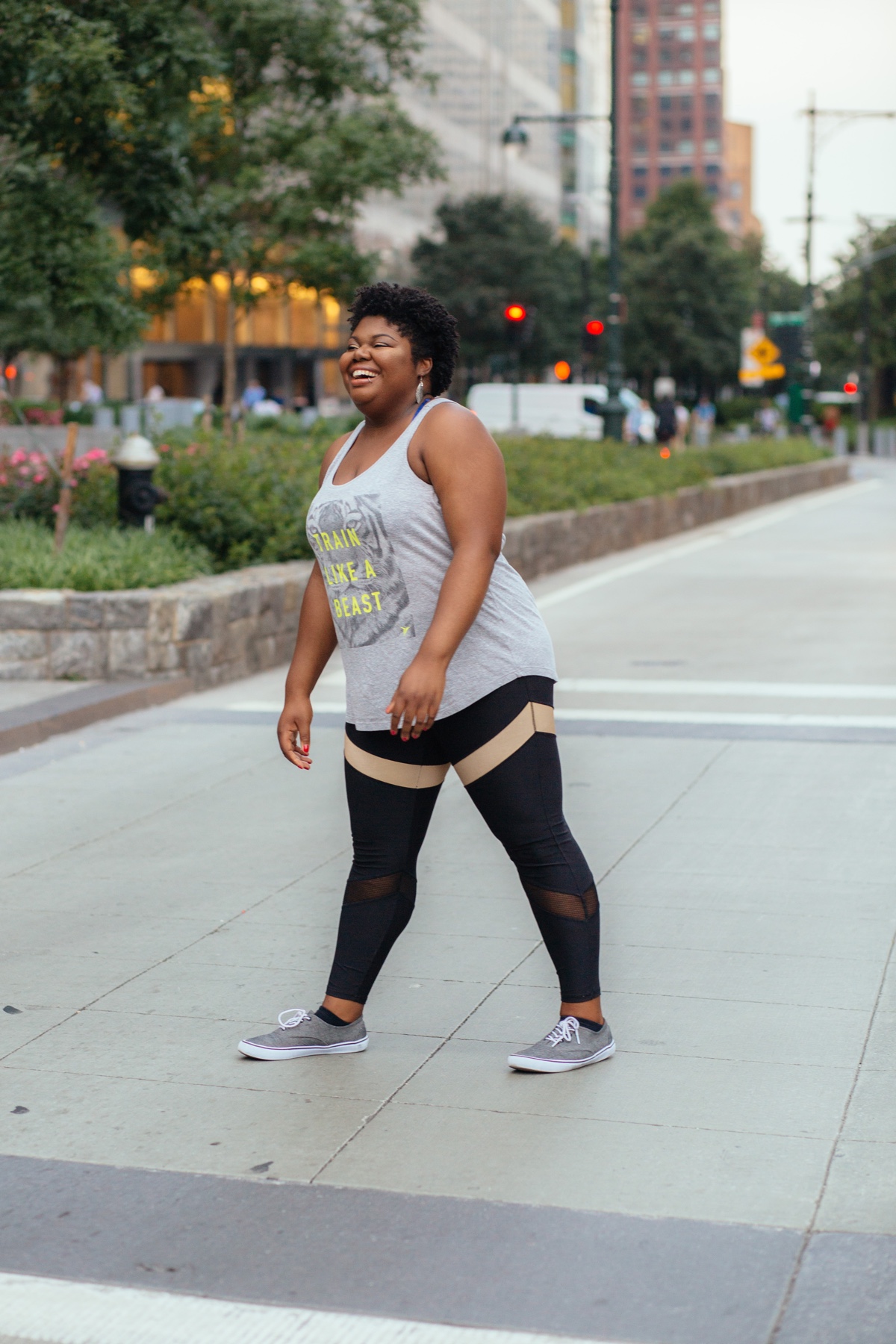
Creating my own representation
As a bonus, going to classes has been an exercise in inviting myself into spaces where people who look like me are not explicitly welcomed and, in the process, learning to care less about what people think. A lot of times, even showing up to a space where my body is rarely represented is an accomplishment in itself. At most boutique studios, the target demographic is a combination of thin white women and exceptionally ripped, also white, men. Unlike your average $10 a month gym, it’s a scene. This is not a shorts and stained t-shirt situation. People roll up looking immaculate in high-end athletic wear and I’m not exaggerating when I say that many of the trainers (and quite a few clients) are literally models. The whole thing is pretty intimidating and admittedly not that inviting if you don’t fit the mold. That said, if you can summon your inner Jessamyn Stanley and make your way past all of that, it’s totally worth it. Which, now that I think about it, may also be true of those design agencies with homogeneously unpigmented team pages (at least I hope so).
After doing nearly 200 classes, I can honestly say I have not really felt any judgement from fellow attendees based on how I look. Any time I felt self-conscious it was because of my own insecurities, not because someone was looking at me sideways. It has been a good reminder that the only person holding me back is me. No one but me was stopping me from trying new classes I was nervous about, and no one but me is stopping me from pursuing the career I want. I just have to keep practicing and reminding myself that I’m just as worthy of taking up space as anyone else.
For me fitness has become an exercise in muscle memory—both mentally and physically. Each class is ostensibly intended to make my body a little stronger each time, but the more I go and feel that swell of pride as I walk out of the studio, the more I gain confidence in myself. The more I enter spaces where I feel like an outsider, the more I realize it’s not the end of the world. Plus it reminds me that if I don’t see other bodies that look like mine, I can be the one to change that. Every time I finish a class, I’m reminded that whether I rocked it or struggled through every minute it’s an accomplishment and I celebrate.
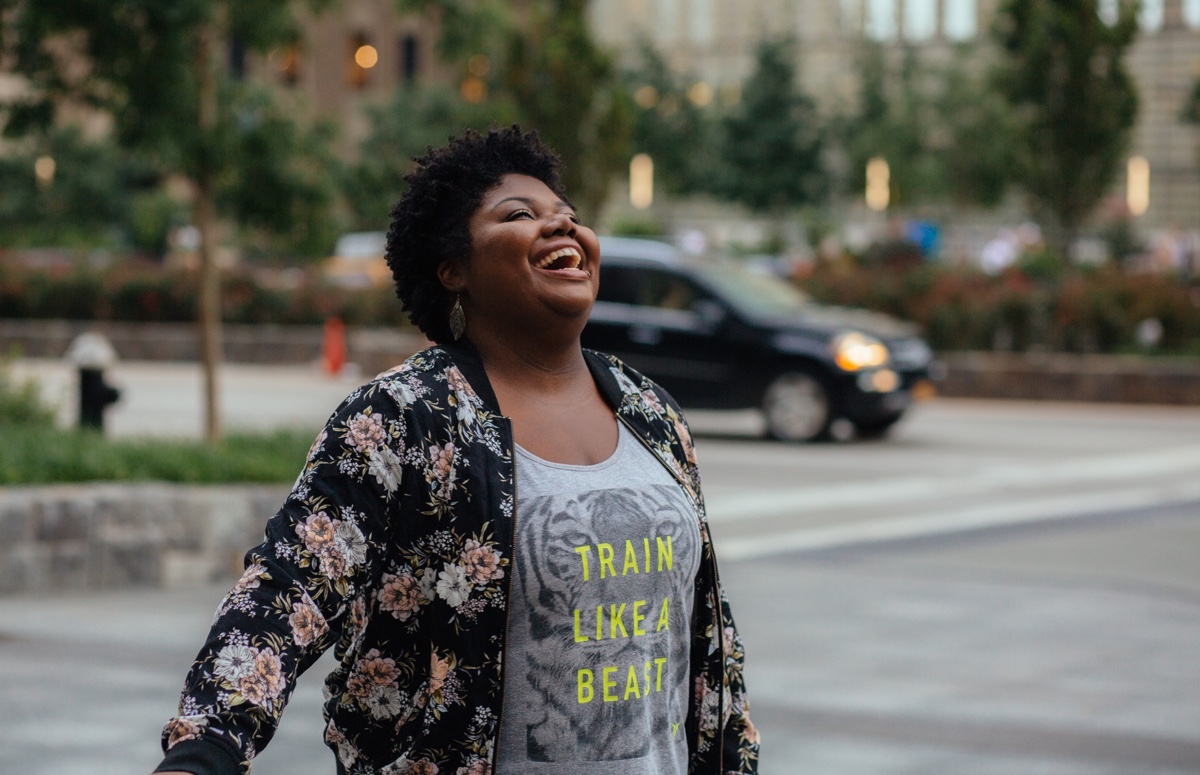
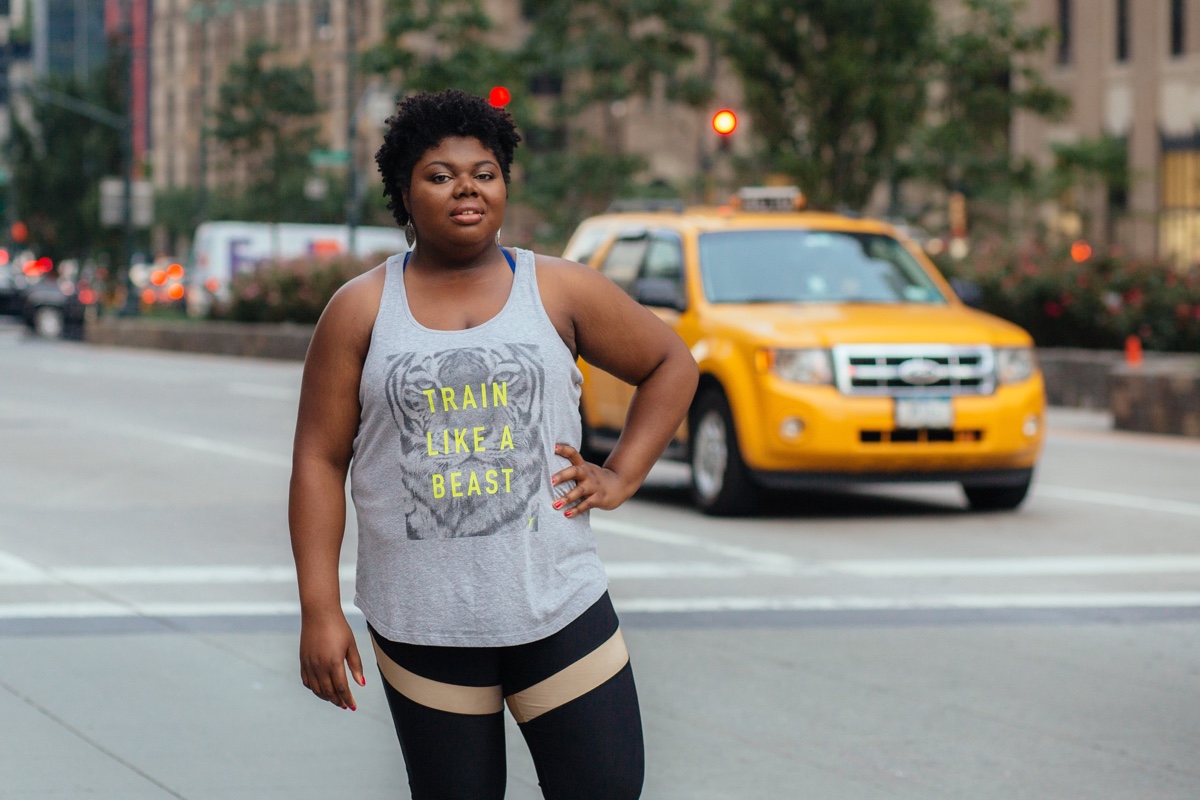
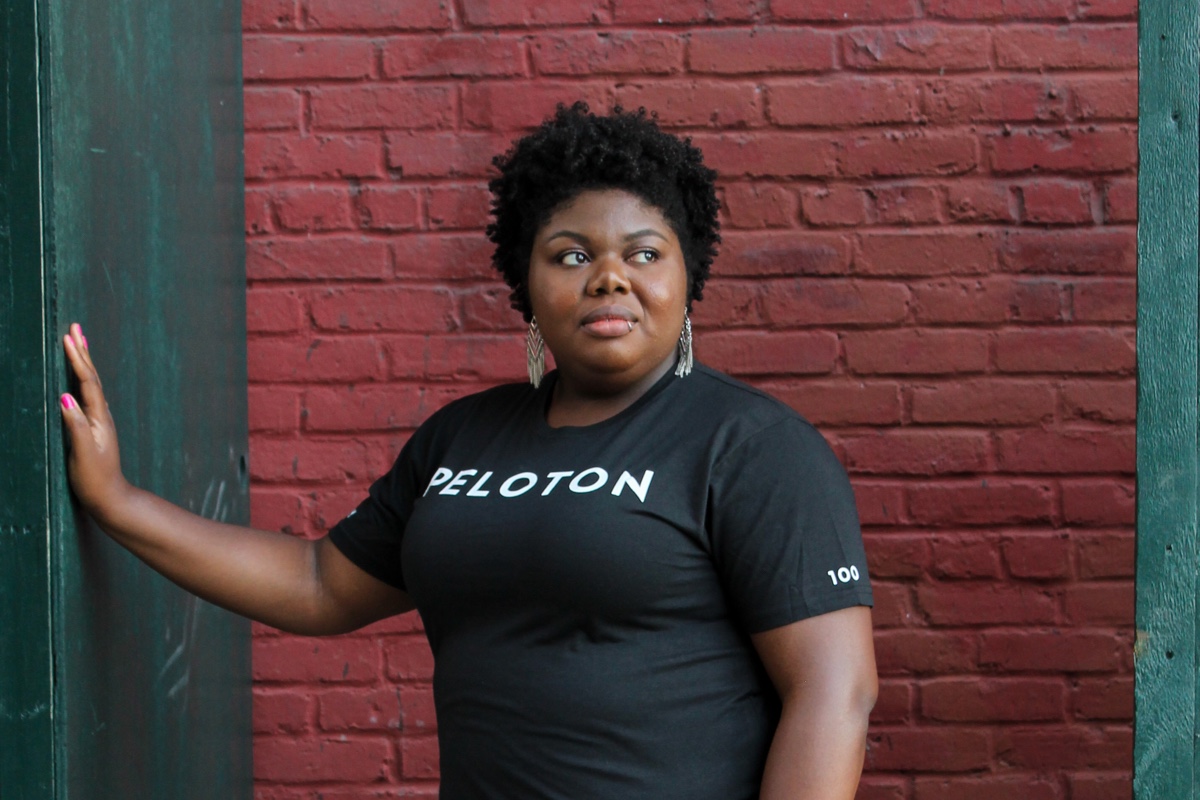

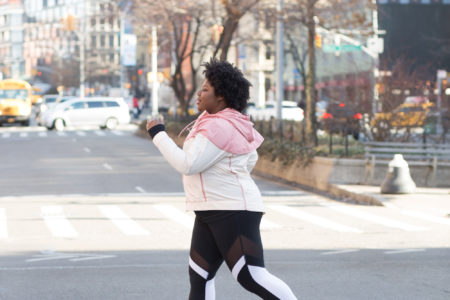
Thank you so much for talking about imposter syndrome and recognizing the role that fitness has and continues to play in your life. I have some similar tendencies – I’m great at crossing projects off a to-do list but terrible at acknowledging them as successes or how they play into the bigger picture. You are kicking ass and this blog is a clear indication of that. Looking forward to seeing more posts!
Thanks, Jess!! (Both for reading and for the kind words). I’m glad I’m not the only one… It is a daily struggle for sure.